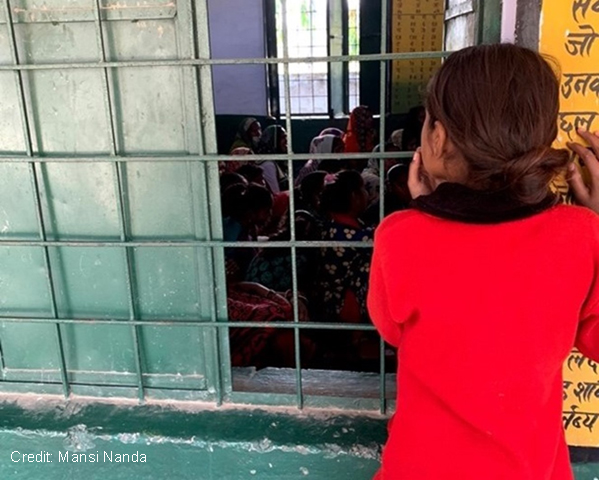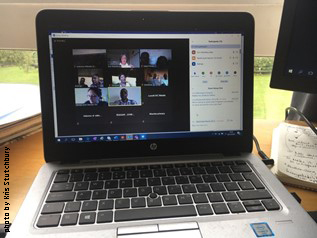This blog was written by Mansi Nanda, PhD student at the Faculty of Education, University of Cambridge. Mansi’s research looks at primary school teachers’ perspectives around school community engagement in rural district Sitapur, India. Her wider research interests include school community partnerships, teacher beliefs and early childhood education in rural India.
The global pandemic has caused schools to shut down, forcing children to be at home with parents for more than a year. As schools start to reopen, it will be increasingly important for teachers to interact more with the parents. An understanding of the behaviours and structures that drives teachers to interact with parents could play a key role in strengthening school community partnerships to improve children’s learning.
I recently had an opportunity to present at the 2021 UKFIET conference. In my presentation, I discussed how the assumed benefits of interactions with parents and the practices followed by primary school are in contradiction leading to a lack of fulfilment of benefits of interacting with the parents.[i]
To begin with, teachers were asked about the usefulness of interacting with the parents and some of the potential benefits stated by them included:
- Maintaining regularity: Teachers make direct connections between attendance and learning outcomes of children and consequently, felt that one of the main benefits of interactions with the community (specifically with parents) was that it could improve attendance of children. However, to achieve this, the teachers claimed to be going on occasional rounds to the village to call children and mostly relied on parents to send their child to school instead of discussing the problem of attendance with the parents and coming up with a solution.
- Understanding the child and family better: The second potential benefit explained by the teachers was that interactions could help in a better understanding of the child as well as the family situation. Based on this understanding, the teachers could modify their way of teaching, as well as understand the behaviour of the child in the classroom, and assess the child better. However, when teachers were asked what they do if the child is not learning well in the classrooms, no teacher considered getting in touch with parents. This indicates that teachers perceived limited parental role in the learning process in the classroom. This contradicts their stated aim of interacting with parents to help understand the child and to modify classroom teaching accordingly.
- Building Connectedness: Another potential benefit that teachers discussed in the interview was that regular interactions can help build connectedness with the parents so that they listen to the teachers’ advice, cooperate with them, and remain interested in children’s learning. However, to develop connectedness, teachers inform parents about the school management committee meetings and other organised meetings within the school. Such a practice remains dependent on the attendance of parents in these meetings. Since the meetings need to be reported to the higher authorities, often the focus of teachers is then on ensuring attendance of parents in the meetings rather than strategies to build connectedness.
Overall, the practices followed by teachers reveal that school community interactions are not seen as a collaborative activity involving discussions between parents and teachers. They are rather viewed as one-sided channels for conveying teachers’ expectations from parents and are dependent on parents’ actions more.
The contradictions presented in teachers’ expectation of outcomes and actions bring to the table a deeper issue of how implementation of education policies is dependent on meanings derived by school actors. For example: The National Education Policy 2020, rests the responsibility of engaging with parents on teachers, by stating that the school needs to create a welcoming environment for the parents to approach them. This reflects a collaborative approach that the schools need to adopt to build a stronger partnership with the parents. However, at the same time, the channels of engagement mentioned in the policy documents, such as school management committee and parents teacher meeting, are checked through attendance of parents in these meetings rather than providing guidance on strategies to engage parents collaboratively.
One of the many recommendations for reopening schools after months of closure has been to put emphasis on parent teacher engagement. Understanding teachers’ perspectives around such an engagement is helpful since these would be a guiding factor in teachers practices. However, it is equally important to reflect on policies from which school actors derive meaning and purpose of engagement with the parents. Policy-makers should clearly convey the purpose of engagement and alongside introduce the strategies of engagement that align with the intended purpose to help teachers in effectively engaging with the parents in future.
[i] The study is a part of my PhD that draws on semi-structured interviews conducted before COVID-19 pandemic with 17 teachers including head masters, regular teachers and para-teachers across six government primary schools in three blocks within the Sitapur district in Uttar Pradesh.





